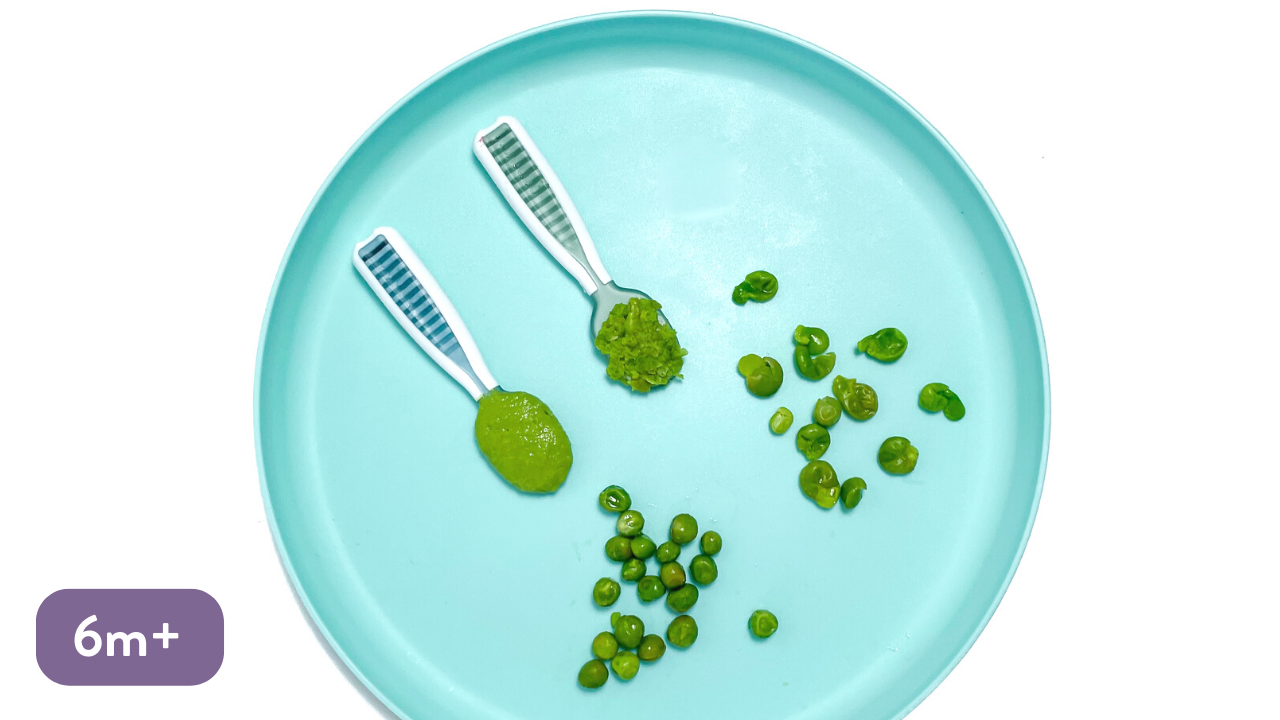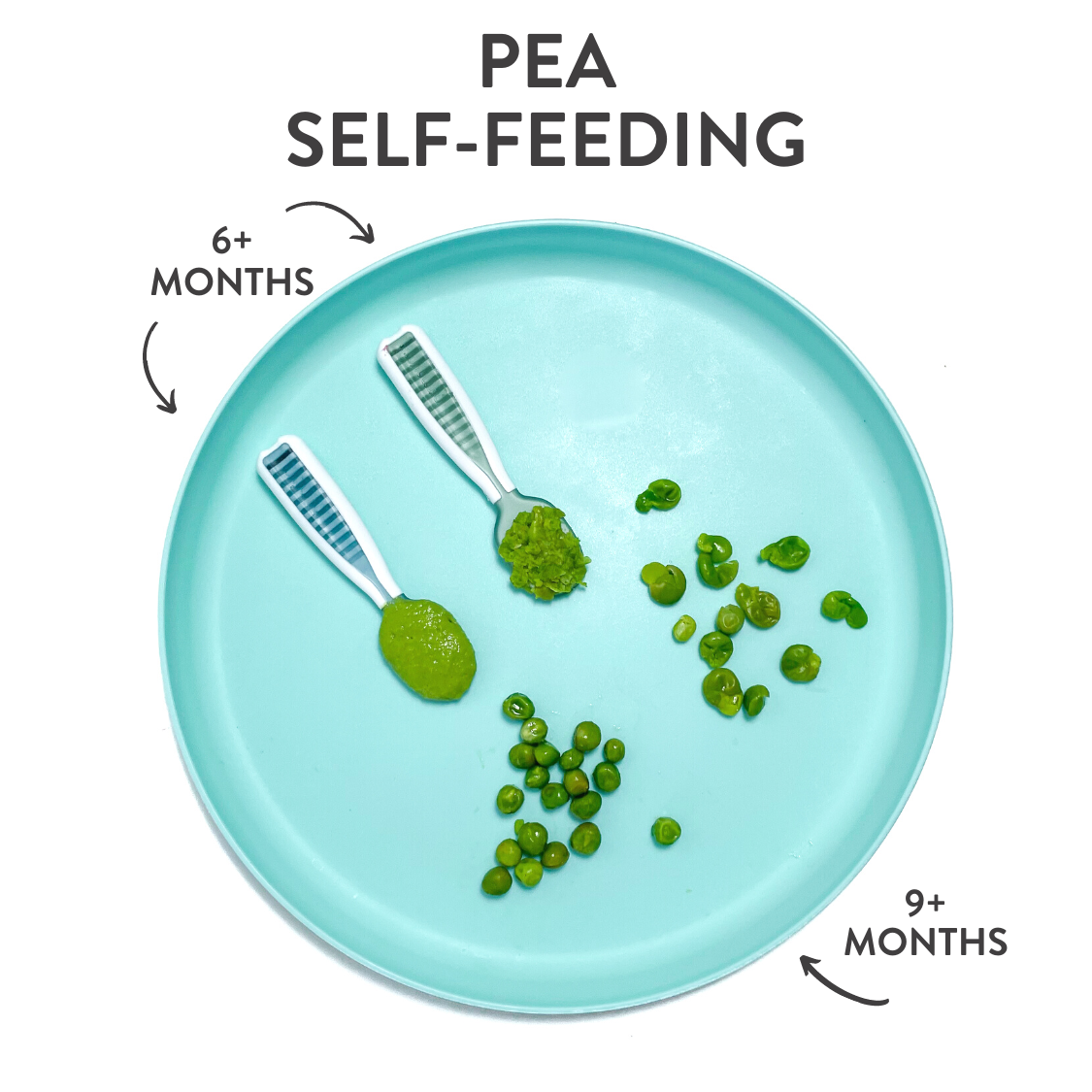
Pea for Self-Feeding
Peas are a good food for your baby to self-feed, whether for baby-led weaning, which happens around 6 months of age, or during the finger foods stage at 9 months.
- 6+ months - Mashed or Pureed on Self-Feeding Spoon: Mashed peas have a thicker consistency so will be easy to stick to a self-feeding spoon. Or you can let your baby just dive their hands right in and scoop them up that way.
- 9+ months - Flattened: At 9 months, the pincer grasp is newly developing so flattened peas can give your baby some practice with it.
- 12+ months - Whole: By 12 months, babies should be able to handle eating whole peas, and be able to pick them up with a more developed pincer grasp.

Pea for Self-Feeding
Prep Time: 5 minutes
Cook Time: 0 minutes
Servings: 1-2 servings
Age: 6+ months
Ingredients
- 1/2 cup peas, fresh or frozen
- 1 tbsp water
Instructions
-
In a small saucepan, add in the peas and water and cook on medium heat for 5-10 minutes or until soft. Strain and let cool.
-
Cut or mash and serve in an age-appropriate way.
Notes
Age: 6+ months
Yield: 1-2 portions for baby
Storage: you can store the peas in an air-tight container in the fridge for up to 4 days.
Puree for Self-Feeding: Yes, it can be done! You can offer purees and still allow your baby to lead the way with self-feeding.
- Place a few spoonfuls of purees directly on the tray or in a bowl for your baby to dip fingers into. Model how to dip your fingers into the puree and bring them to your mouth, to taste some.
- Offer your baby a pre-loaded self-feeding utensil and hold it out for them to grasp or set on their tray.
- Use a solid food as a dipper. You can also offer a soft stick-shaped piece of food, such as a soft roasted carrot or bread lightly toasted and cut into strips to dip into the puree.
Nutritional Information
Don’t be fooled by the size of a pea- they are nutritional powerhouses!
- Peas are high in fiber, so they help promote healthy digestion.
- A good source of protein for growth and development.
- An array of micronutrients, such as thiamine, folate, manganese, vitamins A, C and K.
- A good source of antioxidants to help with cancer prevention.
